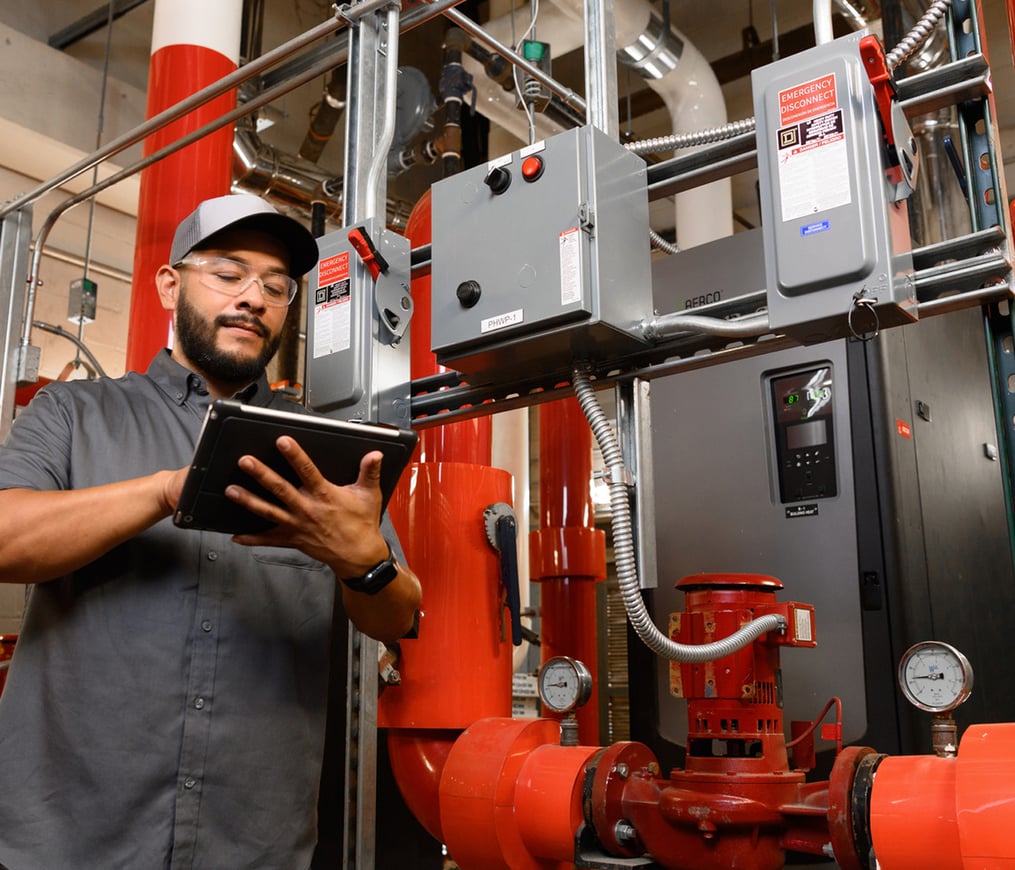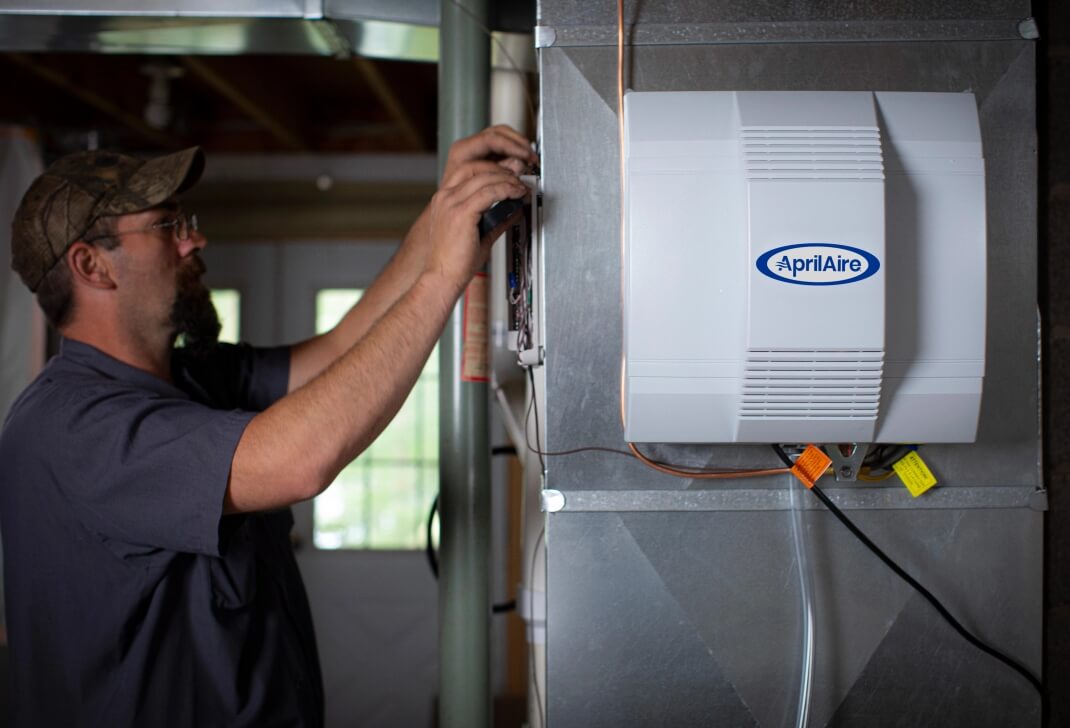An Extensive Check Out Cooling And Heating Providers and Their Influence On Power Effectiveness and Cost Savings
The role of cooling and heating solutions in enhancing energy efficiency and accomplishing expense savings is more vital than ever, as services and house owners look for lasting services in a significantly eco-conscious world. With technological innovations like clever thermostats and high-efficiency elements, the capacity for enhancing system efficiency is large. Yet, real influence of these developments depends largely on normal upkeep and positive problem monitoring. As we explore the intricate partnership between cooling and heating systems and functional prices, consisting of the change in the direction of eco-friendly choices, the inquiry arises: how can these techniques be properly implemented to optimize both economic and ecological advantages?

Relevance of Heating And Cooling Systems
a/c systems are a crucial component of modern-day structures, playing an essential role in keeping healthy and balanced and comfy indoor settings. These systems, encompassing ventilation, home heating, and air conditioning, are necessary for managing temperature level, moisture, and air high quality, thus making sure the wellness of passengers. Reliable HVAC systems contribute considerably to creating an optimum indoor environment, which is crucial for both household and business spaces.
In commercial structures, HVAC systems are important to providing a secure and effective environment. By managing indoor environment conditions, these systems assist avoid the growth of mold and mildew and the spread of airborne impurities, therefore securing the wellness of consumers and staff members. Furthermore, in property settings, HVAC systems enhance living conditions by offering regular thermal comfort and improving interior air top quality, which is essential for overall health and wellness.
Additionally, the layout and upkeep of heating and cooling systems have a straight effect on energy consumption and operational prices. Appropriately made and kept systems can considerably minimize power use, bring about reduced utility bills and a smaller carbon footprint. The efficiency of these systems thus plays an essential duty in promoting sustainability and energy conservation within structures, highlighting their significance in the modern building landscape.
Developments in Cooling And Heating Innovation
Innovation in a/c technology is changing the method buildings handle indoor climates, ushering in a brand-new era of effectiveness and control. Recent developments have concentrated on optimizing power intake while enhancing user convenience. One significant advancement is the integration of smart thermostats, which make use of fabricated knowledge to learn tenancy patterns and readjust temperatures appropriately, reducing unnecessary power usage.
Variable Refrigerant Circulation (VRF) systems represent another considerable jump ahead. These systems enable exact temperature level control in various zones of a structure, enhancing convenience and minimizing energy waste. VRF modern technology is especially helpful for big industrial rooms, using versatility and scalability.
In addition, the introduction of Internet of Things (IoT) devices has actually transformed HVAC systems right into interconnected networks efficient in real-time data collection and analysis. This connection allows anticipating upkeep, ensuring systems run at peak effectiveness and reducing unanticipated downtime.
In addition, improvements in materials and layout, such as making use of high-efficiency coils and compressors, have enhanced total system efficiency - Heating Contractor. The fostering of eco-friendly cooling agents also underscores the sector's commitment to sustainability
These technological developments are critical in minimizing operational costs and ecological impact, setting new criteria see this for building climate administration.
Heating And Cooling Upkeep and Effectiveness
Guaranteeing ideal performance of heating and cooling systems prolongs past technical advancements; it likewise hinges on effective upkeep techniques. Regular upkeep is essential for sustaining efficiency, reducing power usage, and extending the life expectancy of HVAC systems. The main goal is to ensure that all parts operate at their peak possibility, therefore minimizing energy wastage and maintaining regular interior convenience degrees.
Routine maintenance jobs, such as cleaning or changing air filters, click this link examining cooling agent degrees, and examining ductwork for leaks, are necessary for stopping unneeded strain on the system. Clogged up or filthy filters can block air movement, causing the system to function harder and consume even more energy. Likewise, inadequate refrigerant levels can reduce cooling efficiency, causing higher functional costs.
In addition, routine examinations by certified professionals can identify possible concerns before they intensify right into expensive repair work or system failings. These evaluations commonly include examining electrical connections, adjusting thermostats, and guaranteeing the overall stability of the heating and cooling system. By addressing small problems early, home owners and organizations can stay clear of unforeseen failures and improve energy effectiveness.
Cost-efficient HVAC Solutions
For those aiming to obtain one of the most out of their home heating, air, and air flow conditioning systems without breaking the financial institution, checking out affordable cooling and heating services can make a substantial distinction. One immediate procedure is to purchase programmable thermostats, which permit individuals to set specific temperature levels for different times of the day, enhancing power use and decreasing unnecessary consumption. By automating temperature level modifications, property owners can accomplish considerable savings on power expenses.
Regular upkeep is an additional crucial component of cost-effective heating and cooling management. Ensuring that filters are cleansed or changed consistently, ductwork is secured, and units are serviced by professionals can prevent pricey fixings and improve system durability. Preventive maintenance not just keeps system performance but also aids in avoiding unanticipated malfunctions that can lead to pricey emergency repair services.
Additionally, retrofitting existing systems with energy-efficient components, such visit here as variable rate electric motors or high-efficiency compressors, can be a prudent investment. These upgrades enhance functional efficiency, lower energy use, and can frequently be executed at a portion of the cost of a complete system replacement.
Ecological Impact Reduction
Reducing the ecological impact of heating and cooling systems is vital in today's quest of sustainable living. HVAC systems are considerable factors to power intake, accounting for nearly 40% of power use in business structures. This power need usually relies upon nonrenewable fuel sources, leading to greenhouse gas discharges and ecological degradation. Transitioning to much more effective systems, such as those making use of renewable resource resources, can significantly minimize these impacts.
Technological advancements in a/c style and procedure, consisting of the assimilation of smart thermostats and energy-efficient warm pumps, are pivotal in lowering carbon footprints. These developments enable maximized energy usage, decreasing wastage and boosting general system performance. Additionally, adopting regular upkeep practices guarantees cooling and heating systems run at peak efficiency, additional stopping unnecessary power consumption.
In addition, using eco-friendly cooling agents is important, as conventional cooling agents, like CFCs and HCFCs, have been eliminated as a result of their ozone-depleting buildings. Modern options, such as hydrofluoroolefins (HFOs), deal minimized ecological risks, lining up with international environmental protocols. By accepting these sustainable methods, cooling and heating solutions can play a transformative duty in reducing environmental impacts, promoting energy efficiency, and cultivating an extra lasting future.
Final Thought

Moreover, the design and upkeep of Cooling and heating systems have a direct effect on power intake and operational prices. Normal upkeep is essential for sustaining effectiveness, decreasing energy consumption, and prolonging the life period of A/c systems. Cooling and heating systems are substantial contributors to energy intake, accounting for virtually 40% of power use in business structures. Furthermore, embracing routine maintenance techniques makes certain Heating and cooling systems run at peak efficiency, additional cutting unnecessary energy usage.
The change to environmentally friendly A/c systems further advertises and reduces functional prices sustainability. (Heating Contractor)